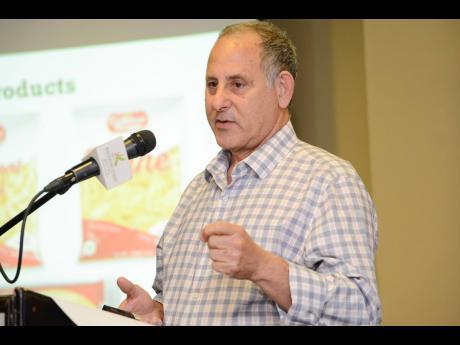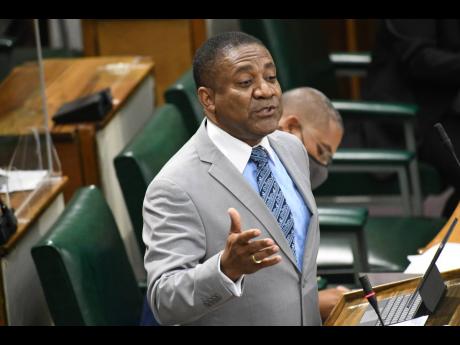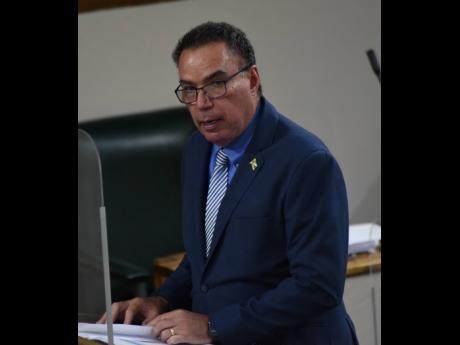High fuel price pain!
Burdening energy costs trigger yet another call to re-engage PetroCaribe talks
While President of the Jamaica Manufacturers and Exporters Association (JMEA) John Mahfood is lamenting the high-energy prices that continue to significantly impact the manufacturing sector’s electricity and transportation costs, former energy...
While President of the Jamaica Manufacturers and Exporters Association (JMEA) John Mahfood is lamenting the high-energy prices that continue to significantly impact the manufacturing sector’s electricity and transportation costs, former energy minister Phillip Paulwell is pressing the Government to swiftly reinstate its oil pact with Venezuela under the PetroCaribe agreement.
According to Mahfood, the cost of transportation also has an indirect impact on workers who must pay higher fares to operators of public transportation or for those who own cars and must deal with rising petrol prices at the pump.
The JMEA head said that the industry was hopeful to see more reductions to come with a high likelihood that the economy would return to prices prior to the Russia-Ukraine war, quoting between US$30 and US$50 per barrel.
But with the Organisation of Petroleum Exporting Countries’ decision to cut output to ensure that prices remain high and returning to the US$100 margin, said Mahfood, there would be no sense of sustainability in the long term.
“It is going to continue to affect us negatively. It’s one of those prospects of inflation that has a big impact on the companies in Jamaica, and we see price increases from overseas continuing. It hasn’t really stopped,” he said.
Mahfood said it was possible for the Government to do something to assist the sector.
In relation to the ad valorem special consumption tax (SCT) on fuel at US$67.50 per barrel, Mahfood stated that the Government should have set a cap while fuel was being sold at a lower rate of between US$30 and US$40 per barrel.
“But as the price goes up, going back to the US$100 level, they are collecting more and more taxes, and its impacting negatively on the transportation costs,” said Mahfood.
“So I would have thought that a thoughtful Government, realising the terrible impact that poor Jamaicans are feeling, would be looking at what they can to reduce the pressure on the price of oil,” he added.
According to Mahfood, the Government should consider how to use the additional tax revenue from the General Consumption Tax (GCT) or the gas tax to reduce inflation, which hinders the economy’s growth as other prices continue to rise and put a burden on citizens.
He stated that while he was unsure of Venezuela’s capability to pump more oil to supply Jamaica, he believed that “while the US may not favour Jamaica engaging with Venezuela, it seems to me that that would be a good help for our country”. He said that this would need to be implemented in short order if Jamaica hopes to ease the burdens of businesses and citizens.
In his contribution to the Sectoral Debate in May, Paulwell, the opposition spokesperson on energy, recommended that the Government consider re-engaging with Venezuela for oil. This was especially relevant given the intensification of sanctions against Russia as a result of the ongoing Russia-Ukraine war, which started in February.
The war has contributed to a significant surge in the prices of energy and food across the globe.
Daryl Vaz, minister of science, energy and technology, in response to Paulwell’s proposal, had indicated that he would have had discussions on the matter, noting that the Government had not ruled out possible re-engagements with Venezuela.
However, Paulwell informed The Gleaner on Sunday that since May, no updates on the matter have been provided.
“While we are anticipating overtures by the Americans to Venezuela, our Government doesn’t seem to be on that same trajectory. So unfortunately, I believe we are going to miss any such opportunity at this time,” he said.
Prime Minister of St Vincent and the Grenadines Dr Ralph Gonsalves recently announced that his country had restored its oil pact with Venezuela and would be receiving approximately 23,000 barrels of oil by the end of October under the PetroCaribe agreement.
Gonsalves has been lobbying for CARICOM to re-engage with Venezuela. He also made the call at the 43rd CARICOM Heads of Government meeting in July.
Under the PetroCaribe agreement, Venezuela offered concessionary payment terms to oil-dependent Caribbean countries to offset the impact of the spike in global oil prices.
In April, Gonsalves said Caracas agreed to cancel St Vincent and the Grenadines’ debt under PetroCaribe, which would result in the declining of that country’s national debt by nine per cent.
In addition, he noted that Venezuela would also halve the debt of the other member countries of the Organisation of Eastern Caribbean States that are members of PetroCaribe, offering fuel at 35 per cent discount to participating countries.
Paulwell told The Gleaner that it is never too late to re-engage with Venezuela as he anticipates more Caribbean countries to follow St Vincent and the Grenadines’ lead.
“I would still urge that outreach be done. Of course, it would have to be after consultation with the US because the sanctions still apply,” he said.
Paulwell further lobbied for the Government to pay more urgent attention to transforming the local energy sector through the reduction of the country’s energy bill by looking towards more renewable energy projects.
“Not one renewable project has been implemented since we left office in 2016 ... that hasn’t happened because the will isn’t there,” he said.
Vaz, when asked to comment on whether the Jamaican Government has sought to re-engage its Venezuelan counterpart, said that if US sanctions are lifted, the administration is prepared to explore opportunities.
When then US President Donald Trump issued an executive order in 2017 imposing restrictions on government entities in the South American country, Jamaica approved legislation to buy Caracas’ Petrojam shares and channelled the funds into an escrow account to avoid US sanctions.
In a May Gleaner interview, Venezuela’s chargé d’affaires in Kingston, José Antonio Sánchez Vegas, stated that the Venezuelan government had no resentment towards the Holness administration after Jamaica compulsorily acquired Caracas’ 49 per cent stake in the Petrojam refinery amid the threat of sanctions from Washington.
“We have never closed the door. We have always been there and willing to cooperate again,” he said.



